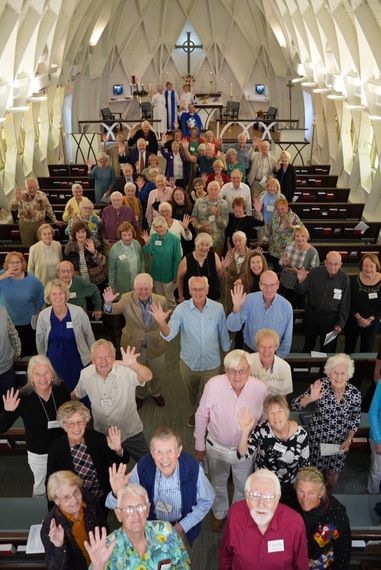Brian McLaren considers how Jesus’ inclusive message invites us to ongoing conversion:
“[Jesus] loved to compare the kingdom of God to a party. He would demonstrate the open border of the kingdom of God by hosting or participating in parties where even the most notorious outcasts and sinners were welcome.
Jesus was often criticized for this “table fellowship” with notorious sinners; his critics assumed that Jesus’ acceptance of these people implied an approval and endorsement of their shabby behavior. But they misunderstood: Jesus wanted to help them experience transformation. Rejection hardens people, but acceptance makes transformation possible. By accepting and welcoming people into his presence, just as they were, with all their problems and imperfections, Jesus was exposing them to his example and to his secret message. In this way, he could challenge them to think—and think again—and consider becoming part of the kingdom of God so they could experience and participate in the transformation that flows from being in interactive relationship with God and others….
The thrust of Jesus’ message is about inclusion—shocking, scandalous inclusion: the kingdom of God is available to all, beginning with the least. Yet Jesus often warns people of the possibility of missing the kingdom. “Unless you become like a little child,” he said, “you shall not enter the kingdom” (see Matthew 18:3). So the possibility is real: the kingdom of God that is available to all can be missed by some.
What we need is a requirement that those who wish to enter actually have a change of heart—that they don’t sneak in to accomplish their own agenda, but rather that they genuinely want to learn a new way of thinking, feeling, living, and being in “the pastures of God.” Perhaps that is why baptism … was so important to Jesus and his disciples…. It was important to call people to a change of heart and give them a dramatic way of going public by saying, “Yes, this change of heart has happened within me, and I’m willing to identify myself publicly as a person who is on a new path.” And perhaps the Christian ritual of Eucharist was intended to function in a similar way—a kind of regular recommitment where people say, by gathering around a table and sharing in bread and wine, that they are continuing Jesus’ tradition of gathering in an inclusive community. “I’m still in,” they’re saying, “My heart is still in this mission and dream. I’m still committed.”
Peace,
Bill+













